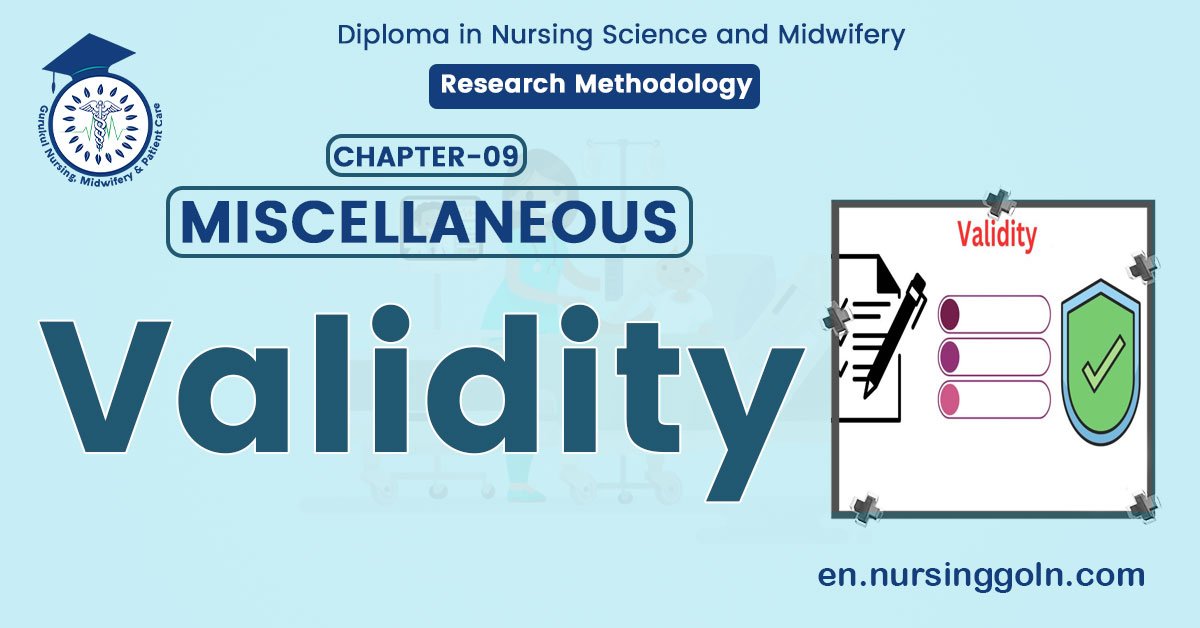Concept of Validity – In its most common sense, methodology is the study of research methods. However, the term can also refer to the methods themselves or to the philosophical discussion of associated background assumptions. A method is a structured procedure for bringing about a certain goal, like acquiring knowledge or verifying knowledge claims. This normally involves various steps, like choosing a sample, collecting data from this sample, and interpreting the data. The study of methods concerns a detailed description and analysis of these processes. It includes evaluative aspects by comparing different methods.
In this way, their benefits and drawbacks are evaluated, as well as the research goals for which they may be used. These descriptions and evaluations are predicated on philosophical background assumptions; examples include how to conceptualize the phenomena under study and what constitutes evidence in favor of or against them. In its broadest sense, methodology encompasses the discussion of these more abstract issues.
Concept of Validity
Validity is the extent to which a concept, conclusion or measurement is well-founded and corresponds accurately to the real world. The word “valid” is derived from the Latin validus, meaning strong. The validity of a measurement tool (for example, a test in education) is considered to be the degree to which the tool measures what it claims to measure; in this case, the validity is an equivalent to accuracy.

In psychometrics, validity has a particular application known as test validity: “the degree to which evidence and theory support the interpretations of test scores” (“as entailed by proposed uses of tests”)
Definition of Validity:
According to Chris Jordan
“Validity is the extent to which a question or scale is measuring the concept, attribute or property it says it is”
According to Kendra Wagner
“Validity is the extent to which a test measure what it claims to measure. It is vital for a test to be valid in order for the results to be accurately applied and interpreted”
(Ref by- Seenidurai Paulraj/Introduction to Nursing Research/1/115)
Classification of Validity:
In a research project there are several types of validity that may be sought. In summary:
1. Construct: Constructs accurately represent reality.
- Convergent: Simultaneous measures of same construct correlate.
- Discriminative: Doesn’t measure what it shouldn’t.
- Nomo-logical network
- Multi trait-multi method matrix.
2. Internal: Causal relationships can be determined.
3. Conclusion: Any relationship can be found.
4. External: Conclusions can be generalized.
5. Criterion: Correlation with standards.
- Predictive: Predicts future values of criterion.
- Concurrent: Correlates with other tests.
6. Face: Looks like it’ll work
Factors Influencing Validity
- Factors which affect internal validity:
- Subject variability
- Size of subject population
- Time given for the data collection or experimental treatment
- History
- Attrition
- Maturation
- Instrument/task sensitivity

Factors affect external validity:
- Population characteristics (subjects)
- Interaction of subject selection and research
- Descriptive explicitness of the independent variable
- The effect of the research environment
- Researcher or experimenter effects
- Data collection methodology
- The effect of time
